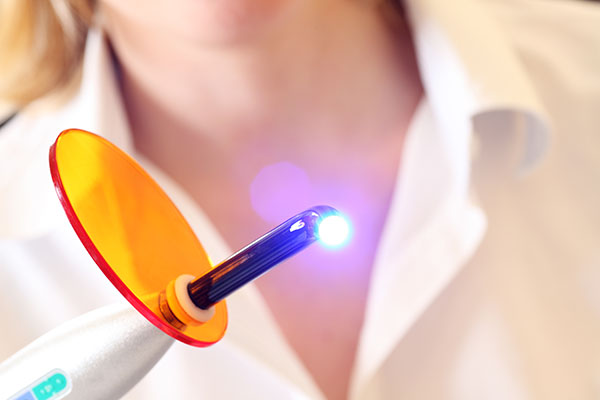3 FAQs About Laser Dentist

You have heard that there is a laser dentist near you, but you are not quite sure what that means. Get the answers to some frequently asked questions, so you will understand laser dentistry. Then you will know if you are a good fit for a laser dentistry procedure.
Laser dentistry FAQs
People have lots of questions about laser dentistry. Find out how it works, if it hurts and what procedures are available with laser dentistry.
1. What is laser dentistry?
Dentists use lasers to remove or manipulate gum tissue and cut through teeth and can do more with laser dentistry overall. A laser dentist relies on lasers instead of scalpels and drills. The lasers do much of what scalpels and drills can do without all the side effects. Dentists like lasers because the beams of light are easy to control. This allows them to treat the area while avoiding healthy tissue.
2. Does laser dentistry hurt?
Pain at the dentist office is a serious concern for many people. The idea of scalpels and drills makes many people cringe. That is one reason so many people now choose laser dentistry. This is often referred to as painless dentistry and it alleviates dental anxiety.
Since dentists do not use scalpels and drills, laser dentistry is less invasive than traditional dentistry. Also, lasers numb teeth and tissue, making most procedures painless. It is so painless that most procedures do not require any anesthesia. When anesthesia is needed, it is much less than what is required for traditional procedures.
The laser also immediately cauterizes tissue. This reduces bleeding and speeds up the recovery time. In fact, many people report that the recovery from a laser dentistry procedure is also painless. People do not go home with stitches when lasers are used. They also do not experience the uncomfortable side effects that come with drills and scalpels.
3. What procedures can a laser dentist do?
Dentists use lasers for a large number of procedures. Many use lasers for fillings. Lasers quickly remove the decay and prepare the tooth. Then dentists add the filling material, and the patient goes home without any anesthesia-related numbness. Also, because lasers provide more control than scalpels and drills do, dentists can keep the healthy tooth structure in place when removing decay.
Lasers are also used for crowns, root canals and periodontal treatments. These beams of light can even improve a gummy smile. Dentists simply manipulate the gum tissue to improve the appearance of the gumline.
Also, dentists often use lasers for teeth whitening procedures. The lasers accelerate the whitening process, so people do not have to spend nearly as much time in the dentist’s office. When lasers are used, the entire teeth whitening process can be finished in half an hour.
Do you want to visit a laser dentist?
It is no wonder that so many people prefer laser dentistry over traditional dentistry. Lasers replace scalpels and drills and provide a painless experience at the dentist. You can also get various procedures done with a laser, such as fillings, crowns, root canals and teeth whitening. Reach out to a dentist to find out more about laser treatments.
Request an appointment here: https://www.dentistofvisalia.com or call Visalia Care Dental at (559) 975-1213 for an appointment in our Visalia office.
Check out what others are saying about our services on Yelp: Read our Yelp reviews.
Related Posts
A dental inlay is one of several restorative options available to repair damaged teeth and preserve oral health. When decay, fractures, or wear compromise the strength or structure of a tooth, dentists consider the severity and location of the damage to determine the most appropriate treatment. Understanding the differences between a dental inlay, onlay, filling,…
Preventative dental care refers to all the ways you can maintain the health of your teeth and gums, which will ultimately help prevent more severe issues down the road. One great way to provide this type of care is through treatments, including scaling and root planing, periodontal therapy, and laser gum surgery. The following are…
Preventative dental care has long been the focus of dentists and patients alike. Taking proactive steps to protect your teeth and gums not only helps you prevent tooth decay and gum disease but can also decrease your risk of developing other illnesses such as heart disease, stroke, cancer, and diabetes. Here’s how oral health affects…
The most effective way to prevent tooth decay is with preventative dental care. Everyone wants to maintain a healthy white smile for a lifetime. Your smile is your first impression and a great way to show confidence. Keeping that smile can be very easy if you follow a few easy steps.Tooth decay causes gum disease,…
